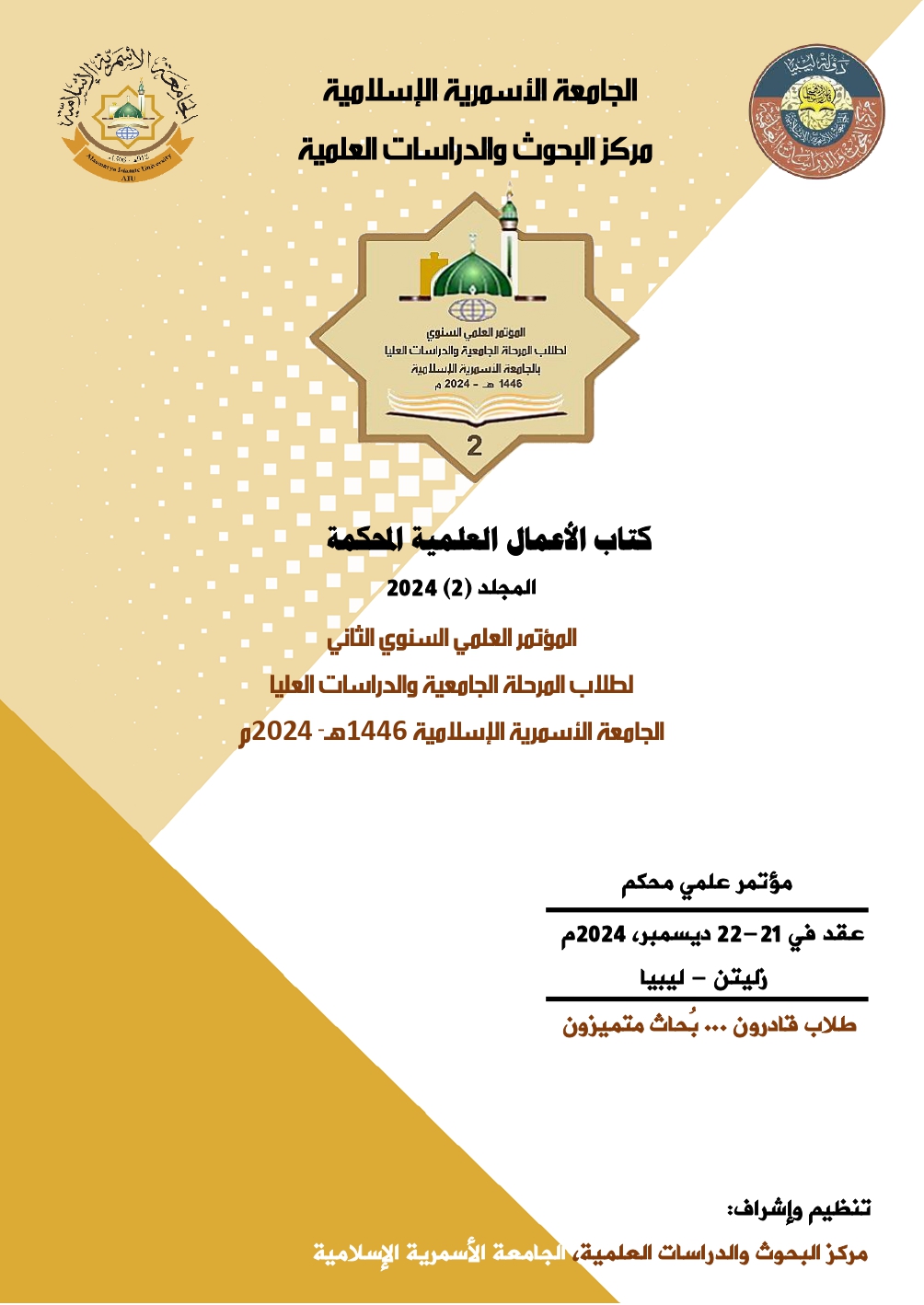The Effect of Lack Unconscious Learning to Speak English Fluently
Keywords:
Speaking, Unconscious, Problem, Lack, AlasmaryaAbstract
Mastering speaking skill is one of the most important aspects of learning a second or foreign language. This research sought to discover the reasons behind student's inability to have speaking skill, the role of unconscious learning in speaking English language and finding the practical solution. The paper shows some previous studies and theories of researches that are associated with our research study and probable declare our hypothesis. The current study used two methods that are questionnaire and interview that are directed to a sample of 75 Libyan female students who were selected from Alasmarya Islamic University. The data analyzed using SPSS Program. The findings of this study showed that most of students of Alasmarya Islamic University failed in speaking English fluently, because of several factors that influenced these difficulties like: insufficient time and lack of activities, students have no idea about the topic, and overuse memorization, imbalance between listening and speaking lectures, and unqualified curriculums. The study's overall process is concluded in the final chapter. It is concerned with the answers to the research questions posed in the first chapter, as well as the results; the report also provides suggestions for teachers, and students to adopt. The research recommends: increase the time of listening and speaking lecture, increase the practical part, and teachers may take in their account that curriculums should not be crowded with old theories.
Downloads
References
Al Hosni, S. (2014). Speaking difficulties encountered by young EFL learners. International Journal on Studies in English Language and Literature (IJSELL), 2(6), 22-30.
Aleksandrzak, M. (2011). Problems and challenges in teaching and learning speaking at advanced level. Glottodidactica. An International Journal of Applied Linguistics, 37(1), 37-48.
Al-Jamal, D. A., & Al-Jamal, G. A. (2014). An Investigation of the difficulties faced by EFL undergraduates in speaking skills. English Language Teaching, 7(1), 19-27.
Chi, D. L. (2011). Guidance for Learners’ Improvement of Speaking Skills. Language Education in Asia, 2(2), 213-226.
Clifford, R. T. (1987). Language teaching in the federal government: A personal perspective. The Annals of the American Academy of Political and Social Science, 490(1), 137-146.
Davies, P., & Pearse, E. (2000). Success in English Teaching: A Complete Introduction to Teaching English at Secondary School Level and Above. Oxford University Press.
Gan, Z. (2012). Understanding L2 speaking problems: Implications for ESL curriculum development in a teacher training institution in Hong Kong. Australian Journal of Teacher Education, 37(1), 43-59.
Hammerly, H. (1991). Fluency and Accuracy: Toward Balance in Language Teaching and Learning. Multilingual Matters 73. Multilingual Matters Ltd., England.
Hedge, T. (1993). Key concepts in ELT. ELT Journal, 47(3), 275-277.
Hedge, T. (2001). Teaching and learning in the language classroom. Oxford: Oxford university press.
Krashen, S., Houck, N., Giunchi, P., Bode, S., Birnbaum, R., & Strei, G. (1977). Difficulty order for grammatical morphemes for adult 2nd language performers using free speech. Tesol Quarterly, 11(3), 338-341.
Mahripah, S. (2014). Exploring factors affecting EFL learners’ speaking performance: from theories into practices. In Proceedings of the 3rd UAD TEFL International Conference, 1037-1046.
McLaren, N., Madrid, D. Y., & Bueno, A. (2005). TEFL in secondary education. Granada: Editorial Universidad de Granada. Depósito Legal: GR./1.8010-2005, 737.
Nunan, D. (1991). Language Teaching Methodology: A Textbook for Teachers. Phoenix Ltd., NY.
Richards, J. C. (1990). Conversationally speaking: Approaches to the teaching of conversation. JC Richards, The language teaching matrix, 67-85.
Seliger, H. W. (1983). The language learner as linguist: Of metaphors and realities. Applied linguistics, 4(3), 179-191.
Terrell, T. D., & Krashen, S. (1985). The natural approach: Language acquisition in the classroom. pergamon.
Ur, P. (1996). A course in language teaching. Cambridge: Cambridge university press.
Downloads
Published
Conference Proceedings Volume
Section
License

This work is licensed under a Creative Commons Attribution-NonCommercial-NoDerivatives 4.0 International License.





